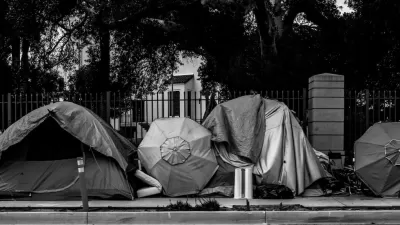Congressional leaders are preparing to propose dramatic new federal initiatives to help homeowners squeezed by the mortgage crisis. Most Republicans -- and the White House -- remain unconvinced that a federal role is appropriate.
"Congressional leaders are racing to push through an array of election-year housing measures that already have stirred up much political wrangling and the White House is examining its own plan to further help homeowners caught in the mortgage meltdown.
With foreclosure signs prevalent and a Wall Street rescue reverberating, majority Democrats want the government to step in and back up to $400 billion in troubled loans. The goal is to help strapped borrowers and thaw a credit market plagued by uncertainty about the value of subprime mortgages made to people with spotty credit or low incomes.
As lawmakers return from their two-week spring recess, their leaders are moving fast to increase the political heat on the housing issue. Many Republicans, though, are resisting what they characterize as heavy-handed federal intervention that could leave taxpayers on the hook for a mortgage bailout.
Senate Democrats plan a test vote this coming week on a series of housing proposals. One would let bankruptcy judges reduce the amount owed and interest payments on loans held by distressed borrowers. President Bush and Republicans strongly oppose the idea.
The Senate took up the plan several weeks ago. But the proposal, which also would make grants available to communities with the highest foreclosure rates so they could buy foreclosed properties, fell well short of the 60 votes it would have needed to advance. Democrats, however, are determined to put Republicans in the position of making tough votes, given the issue's potency for voters.
are several measures that enjoy broad support. They include letting states issue $10 billion in tax-exempt bonds to refinance subprime loans; strengthening loan disclosure rules; and allowing businesses that have suffered losses to reclaim previously paid taxes.
Dodd and Rep. Barney Frank, chairman of the House Financial Services Committee...want the Federal Housing Administration, the Depression-era agency that insures mortgages, to guarantee $300 billion to $400 billion in refinanced loans to troubled borrowers. Lenders would first have to agree to take a loss on the mortgages; borrowers would have to show they could afford to make payments on the new loans.
The plan would insert the government into the maelstrom of the subprime mortgage mess, with public money at risk should homeowners default. But it would rescue hundreds of thousands of borrowers from foreclosure and insure that lenders get something from their mortgages. That, in turn, could boost investor confidence in the value of mortgage-related investments. "
FULL STORY: Congress readies activist housing agenda

Maui's Vacation Rental Debate Turns Ugly
Verbal attacks, misinformation campaigns and fistfights plague a high-stakes debate to convert thousands of vacation rentals into long-term housing.

Planetizen Federal Action Tracker
A weekly monitor of how Trump’s orders and actions are impacting planners and planning in America.

In Urban Planning, AI Prompting Could be the New Design Thinking
Creativity has long been key to great urban design. What if we see AI as our new creative partner?

King County Supportive Housing Program Offers Hope for Unhoused Residents
The county is taking a ‘Housing First’ approach that prioritizes getting people into housing, then offering wraparound supportive services.

Researchers Use AI to Get Clearer Picture of US Housing
Analysts are using artificial intelligence to supercharge their research by allowing them to comb through data faster. Though these AI tools can be error prone, they save time and housing researchers are optimistic about the future.

Making Shared Micromobility More Inclusive
Cities and shared mobility system operators can do more to include people with disabilities in planning and operations, per a new report.
Urban Design for Planners 1: Software Tools
This six-course series explores essential urban design concepts using open source software and equips planners with the tools they need to participate fully in the urban design process.
Planning for Universal Design
Learn the tools for implementing Universal Design in planning regulations.
planning NEXT
Appalachian Highlands Housing Partners
Mpact (founded as Rail~Volution)
City of Camden Redevelopment Agency
City of Astoria
City of Portland
City of Laramie




























